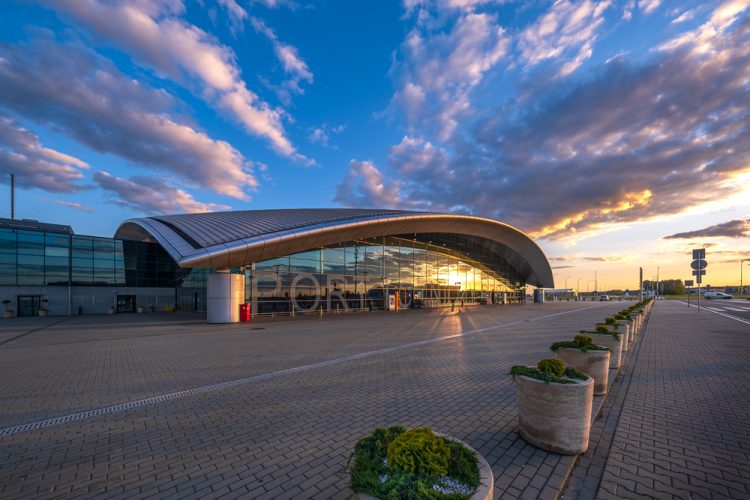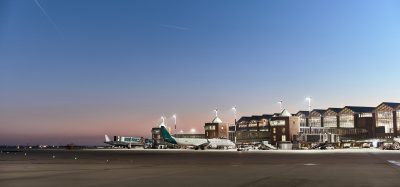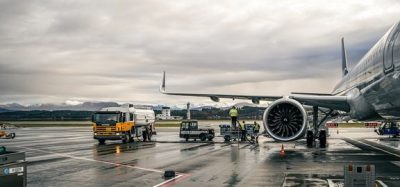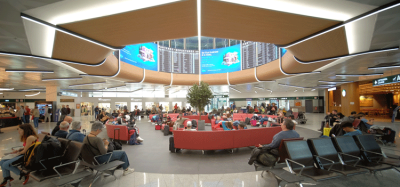The unlikely Polish regional airport which became a key NATO logistical artery: Rzeszów–Jasionka Airport becomes a hybrid hub
Posted: 8 August 2025 | Gabriel Higgins | No comments yet
Bartosz Górski, Vice President of Rzeszów–Jasionka Airport (RZE), spoke to International Airport Review at the Aviation-Event in Cluj about how the airport has transformed from a regional hub into a NATO logistical artery, while growing civilian traffic and commercial capacity.


Located in the south of Poland, Rzeszów–Jasionka Airport (RZE) is a mere 60 miles from war-torn Ukraine. Since February 2022, the date of Russia’s invasion of Ukraine, Jasionka Airport has played a crucial role in supporting NATO’s efforts in supplying Ukraine with weapons and aid.
This transformed the airport from a regional facility into the primary transportation hub of the region.
In the build-up to the invasion, NATO began to assess the airport’s capabilities for handling large aircraft and military planes. Bartosz Górski, VP of Rzeszów–Jasionka Airport, noted that critics said that it was not necessary to build such big infrastructure in that part of Poland. However, they were quickly proved wrong. In the first two weeks of the Russian invasion, Rzeszów received more aircraft traffic than in the entire year prior.
Join our free webinar: Revolutionising India’s travel experience through the Digi Yatra biometric programme.
Air travel is booming, and airports worldwide need to move passengers faster and more efficiently. Join the Digi Yatra Foundation and IDEMIA to discover how this groundbreaking initiative has already enabled over 60 million seamless domestic journeys using biometric identity management.
Date: 16 Dec | Time: 09:00 GMT
rEGISTER NOW TO SECURE YOUR SPOT
Can’t attend live? No worries – register to receive the recording post-event.
Most impressively, the airside services required for this large operation were done by the airport itself. They completed the ground handling and delivered fuel to the aircraft. To help bolster the airport’s security, the U.S. military, along with other NATO nations, set up Patriot Batteries around the airport. A military base was established nearby, along with advanced security equipment.
Jasionka Airport’s civilian side
Though Rzeszów–Jasionka Airport is playing a crucial role for the military, Górski said: “Even though we are known by the public for the military functions, we are still a civilian airport, we just work hybrid activities. The military part does not interfere with the civilian part.”
Despite the complexities of running a military-civilian airport, RZE has developed its passenger traffic from 700,000 to 1.1 million per year. They are looking to increase this by 15% over the next four to five years, aiming for 1.5 million passengers.
As a result, large investments are being made to increase its workforce and expand the airport. “In 2021, we had a workforce of around 260 people. Now we have 500 experienced and skilled staff, not only just for cargo but for the passenger side, for security. We have also invested notably in cyber-security and plan to invest in new gates for transporting goods,” explained Górski.
The airport has split its two terminals, one for the general aviation military side, and the other for civilian passengers. However, investments and future developments will see the general aviation terminal open for passengers.
Over the next three to four years, the airport will invest €100 million to develop and expand its activities. Górski explains where this investment will come from:
“This will be funded mostly by ourselves, but we have some funds from the European Union programme, the Connecting Europe Facility (CEF). We have funds from our stakeholders as well. But we’ve also applied for the external funds for security, firefighters, cargo and the new gate.”
Around €12 million from the investments have come from external sources.
Previously, Górski had to explain the airport’s situation and plans to attract growth to airlines at conferences and meetings. However, since the airport’s transformation due to the war, as Górski stated: “We’ve become more popular.”
Now that the airport has become a larger player in aviation for central and eastern Europe, it can attract more. At of the time of the interview, RZE was in talks with RyanAir to set up at the airport.
The war has also changed the airport’s catchment area greatly. Many Ukrainians now use the airport to travel around. “Now around 25-30% of our passengers are Ukrainian.”
One difficult question, though, is what will happen to the airport if the war ends? Górski wishes the war to end as soon as possible; however, he notes that many Ukrainians have established themselves and their livelihood in Poland and would look to stay.
According to the Regional Studies Association, over 900 million Ukrainians have settled in Poland.
“Many of the Ukrainians who came to Poland will stay. They’ve opened companies, their children attend our schools, and they’ve integrated with our local population,” said Górski.
Unprecedented challenges to transformation
The airport had faced an unprecedented challenge when the war began. This extraordinary event that initially required a logistical response, has now transformed the airport’s long-term development strategy.
“We treated it like a mission,” said Górski, recalling the intensity of the early days of the war. “From the beginning, our teams were working 21 hours a day. It was exhausting, but we were proud to be helping.”
It is clear that Górski sees the future of the airport not only in military and humanitarian missions, but in growing its footprint in commercial cargo and passenger operations. “From the sky, you can see the scale of our infrastructure,” he remarked. “We have all the services in place, all the capabilities, and now we want to expand into more commercial cargo and freight forwarding as well.”
As the world continues to face geopolitical crises, Jasionka Airport is a testament to how regional airports can become indispensable on a global scale and grow under pressure. Its strategic location, prepared infrastructure and dedicated workforce have turned a once quiet regional airport into one of NATO’s key logistical arteries and a growing commercial aviation centre.
About the interviewer
Bartosz Górski has over 20 years’ experience in marketing, sales, negotiations and management. Since 2023 he has been the VP at Rzeszów-Jasionka Airport, overseeing flight network development, aviation and non-aviation services, fuels, purchasing and marketing, as well as relations with airlines, tour operators and commercial partners. He previously worked at Asseco Poland, served as vice-president and president of Asseco Resovia Rzeszów volleyball club, and was vice-president of Aluron Warta Zawiercie volleyball club. A Rzeszów native, he graduated from Rzeszów University of Technology and Warsaw School of Economics, lectures at universities, authored “Sport Manager”, speaks three languages, and is married with two children.
The International Airport Summit is open for registration!
Date: 19 – 20 November 2025
Location: JW Marriott Hotel Berlin
At our flagship event of the year, we will dive into the future of airport operations, with expert-led sessions on passenger experience, innovative smart technologies, baggage handling, airside operations, data, security, and sustainability.
This is where global airport leaders come together to share insights, challenges, and real-world solutions.
Limited complimentary passes are available for eligible professionals – first come, first served!
Related topics
Air freight and cargo, Airport crisis management, Airport development, Airport leadership, Airside operations, Funding and finance, Operational efficiency, Passenger volumes, Safety, Security
Related airports
Related airlines
Related organisations
Connecting Europe Facility (CEF), European Union, NATO, Regional Studies Association, U.S. military


















